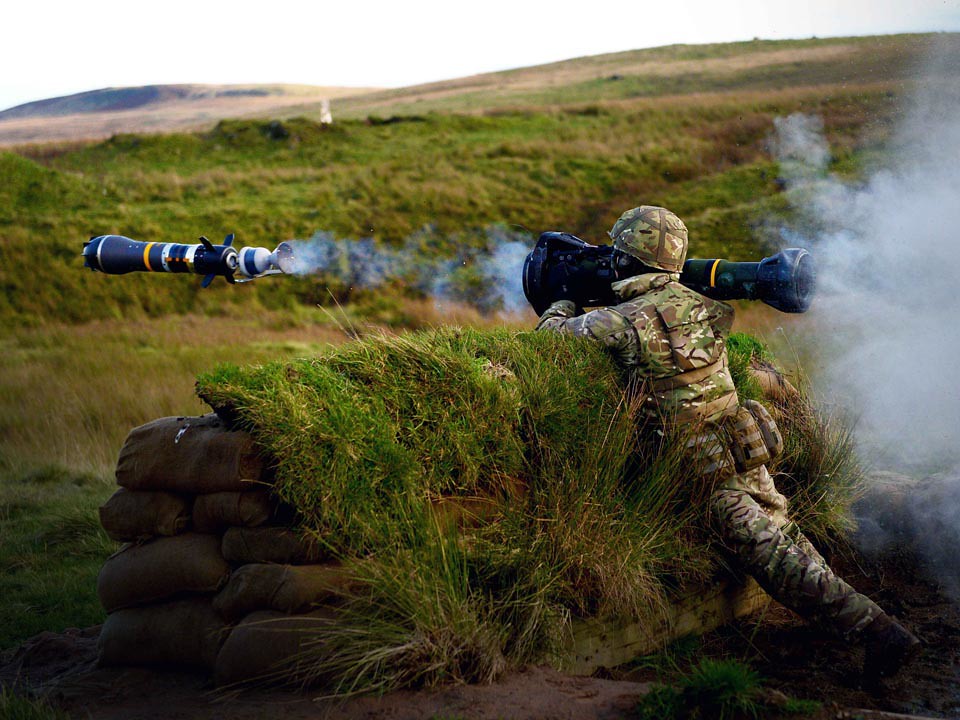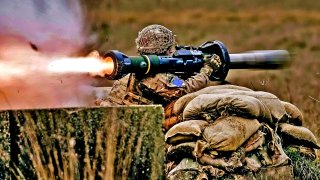Ukraine War: Here's What Could Happen if Donald Trump Is President Again
Here’s what we can say with ironclad certainty: a President Donald Trump reboot next year may or may not be a disaster for Ukraine and its quest to defeat Putin's Russia.
Here’s what we can say with ironclad certainty: a President Donald Trump next year may or may not be a disaster for Ukraine.
Donald Trump Would Be a Disaster for the Ukraine War
The disaster camp can point to a variety of persuasive pieces of evidence.
First, Trump has been notoriously soft on, and may even admire, Russian dictator Vladimir Putin (and a host of other tough guys).
Second, Trump bears no love for or particular understanding of Ukraine (or, for that matter, most other countries) and its security needs.
Third, Trump appears to want to eviscerate NATO, which has been solidly supportive of Ukraine since the Russian invasion of February 24, 2022.
Fourth, Trump defines America’s decidedly global interests very narrowly, largely ignoring the rest of the world, Ukraine included, as well as such recondite things as human rights and democracy.
Fifth, Trump may be beholden to the MAGA Republicans, who are decidedly anti-Ukrainian, and he is definitely beholden to his base, which is at best indifferent to Ukraine.
And sixth, Trump’s authoritarian leanings and hostility to Europe cannot endear him to Ukraine’s fragile democracy and its efforts to break free of Russia’s sphere of influence and join the European Union.
The following quotation (pp. 140-141) from Johathan Karl’s recently published book, Tired of Winning, sums up the case for the disaster camp:
“[Tucker] Carlson told me his conversations with Trump became more frequent and routine after Russia invaded Ukraine in February 2022, and that they focused primarily on the war and foreign policy. According to Carlson, Trump wanted to talk to someone who shared his opposition to US military aid to Ukraine. ‘The real reason he calls me is because he knows that I'm sympathetic to his basic program,’ Carlson told me. ‘I hate the war in Ukraine more than anything, and I think it’s fucking insane. And he’s like the only person who agrees with me on that.’ Carlson said Trump is ‘more radical’ in his opposition to US support for Ukraine than he lets on in public. And given Trump’s record as president—and his longstanding refusal to criticize Vladimir Putin about anything—it’s not surprising that he doesn’t think the United States should be standing up to Russian aggression now.”
Donald Trump Won't Be a Disaster for the Ukraine War
In contrast, former British Prime Minister Boris Johnson is bullish about Trump’s impact on Ukraine: “I simply cannot believe that Trump will ditch the Ukrainians; on the contrary, having worked out, as he surely has, that there is no deal to be done with Putin, I reckon there is a good chance that he will double down and finish what he started – by giving them what they need to win. If that is the case, then there is every chance, under Trump, that the west will be stronger, and the world more stable.”
According to Johnson, “what the world needs now is a US leader whose willingness to use force and sheer unpredictability is a major deterrent to the enemies of the west.”
The non-disaster camp might, therefore, point to the following pieces of evidence.
First, Trump may admire Putin, but he’s never caved to him, perhaps because, to quote the Proposed Plan for Victory in Ukraine written by three influential Republicans, “President Trump understood Putin only respects strength.”
Second, the macho Trump may have little love for Ukraine or Russia, but he won’t want to begin his presidency by “losing Ukraine” and appearing weak vis-à-vis his macho opponent, Putin.
Third, Trump reversed the Obama and Biden administrations’ lethal arms embargo on Ukraine and approved the transfer of Javelin anti-tank missiles, thereby suggesting that Ukraine needs American support.
Fourth, Trump’s indifference to human rights and democratic norms could just as easily work to Russia’s disadvantage as to Ukraine’s, since he would presumably have little to no qualms about using force to compel Russia and Ukraine to strike a deal that might be equally unfavorable to both.

Fifth, Trump’s unpredictability means that there is no reason to think that his admiration of Putin won’t turn to detestation, that his indifference to Ukraine won’t turn to admiration, and that his indifference to the war won’t turn to deep involvement, especially as he’s already promised to end it in 24 hours.
Sixth, Trump may be beholden to the MAGA Republicans up to the point of his victory in November, but there is no reason to think that a loose cannon like Trump will feel beholden to them thereafter.
And seventh, Trump’s hostility to the EU and NATO has already had, and will probably continue to have, the salutary effect of compelling the Europeans to assist Ukraine themselves.

Unfortunately, although a case can be made for both sides, it would be too much to hope for even odds for the non-disaster scenario. But neither is there zero chance of a pro-Ukrainian or semi-pro-Ukrainian Trump presidency.
Having recently invited candidate Trump to visit Ukraine, Ukrainian President Volodymyr Zelensky appears to understand that the die has not been cast and that skillful Ukrainian diplomacy could just make the difference between a disastrous Trump and a non-disastrous one.
About the Author: Dr. Alexander Motyl
Dr. Alexander Motyl is a professor of political science at Rutgers-Newark. A specialist on Ukraine, Russia, and the USSR, and on nationalism, revolutions, empires, and theory, he is the author of 10 books of nonfiction, including Pidsumky imperii (2009); Puti imperii (2004); Imperial Ends: The Decay, Collapse, and Revival of Empires (2001); Revolutions, Nations, Empires: Conceptual Limits and Theoretical Possibilities (1999); Dilemmas of Independence: Ukraine after Totalitarianism (1993); and The Turn to the Right: The Ideological Origins and Development of Ukrainian Nationalism, 1919–1929 (1980); the editor of 15 volumes, including The Encyclopedia of Nationalism (2000) and The Holodomor Reader (2012); and a contributor of dozens of articles to academic and policy journals, newspaper op-ed pages, and magazines. He also has a weekly blog, “Ukraine’s Orange Blues.”
All images are Creative Commons.


